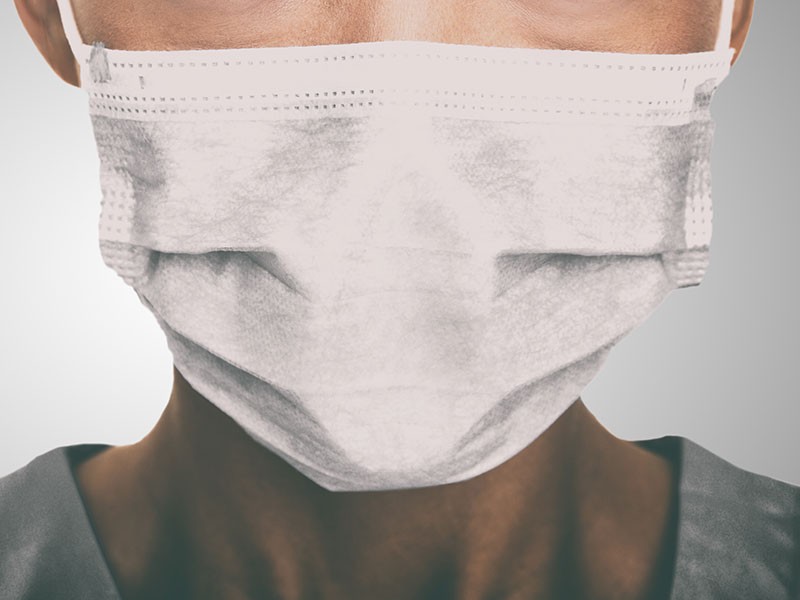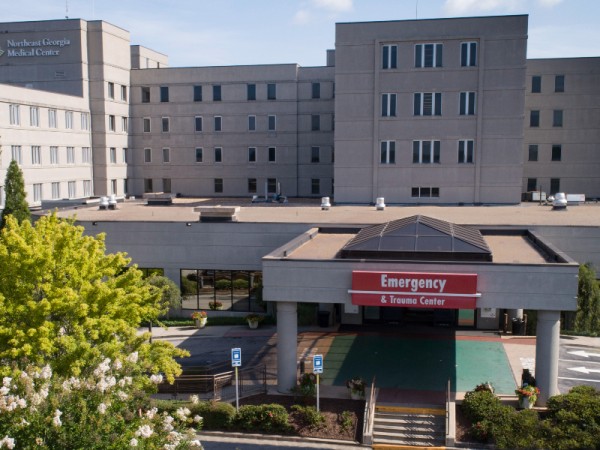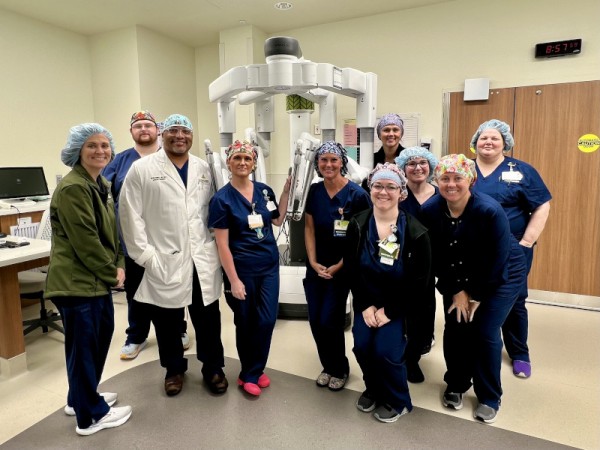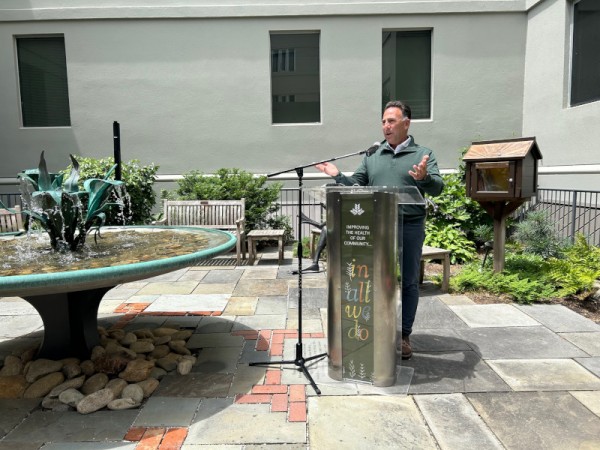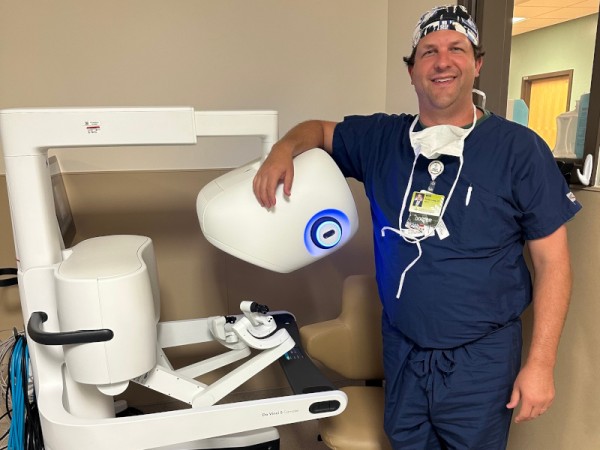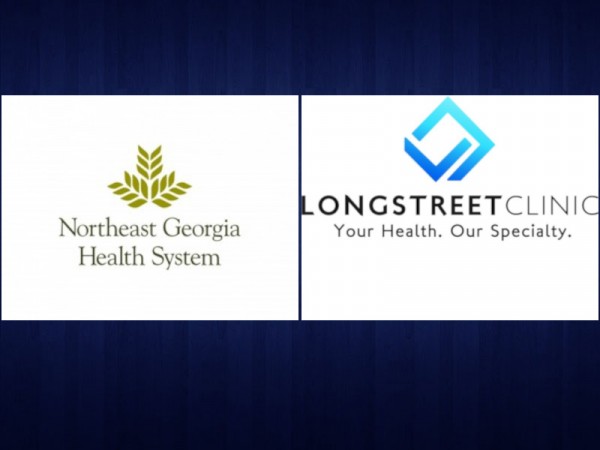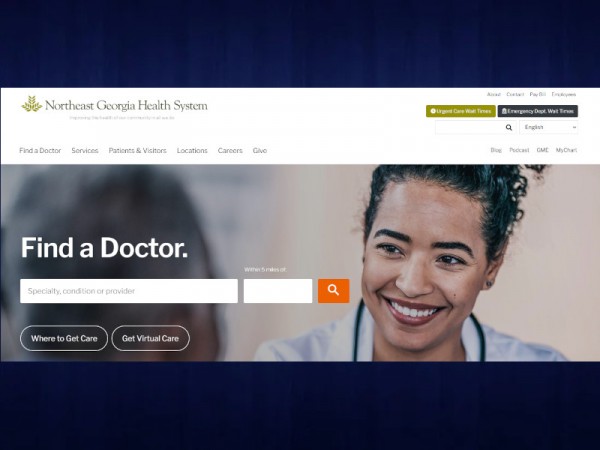As the number of COVID-19 cases in Hall County has risen, health officials noticed a disturbing trend: Nearly half of people diagnosed with the virus are Hispanic.
It is not that the Hispanic community is more susceptible to the virus, officials said. But some Hispanic people face factors, many of them socio-economic, that put them at great risk of contracting the disease, Dr. Antonio Rios, chief physician officer for the Northeast Georgia Physicians Group, said.
“For starters, this virus is an equal opportunity virus,” Rios said. “It does not discriminate between classes.”
Rios said things such as living conditions, working environments and a lack of good, accurate information about protecting themselves from the disease is a problem in more poverty-ridden areas of the county, including some parts of the Hispanic community.
“I do think that conditions that could facilitate the spread of the virus are more prevalent in people that don’t have ready access to information, to resources, to be able to maintain that social distancing, that understanding of how important it is to stay home when you are feeling sick,” Rios said. “To some degree, yes, we do see a higher incidence in our poverty-stricken ZIP codes.”
The growth in confirmed cases here has made Hall County the state’s newest hotspot. Yet efforts are underway to help stem the outbreak. Northeast Georgia Health System and several community organizations are partnering for outreach programs into the Hispanic community to provide education about staying home, wearing masks, social distancing guidelines and good hygiene.
Those efforts, officials said, are beginning to work. But Hall County has not flattened the curve yet. The health system expects to reach its staffing capacity as early as next week, but it does not expect cases to peak until early June.
The Hall County numbers have garnered the attention of Gov. Brian Kemp. At his weekly coronavirus media briefing Monday, the governor announced an initiative to educate member of the Hispanic community about the virus’s risks. That initiative is starting in Hall County.
Insurance Commissioner John King was in Hall County recently talking to poultry industry executives to ensure their workers understand public health guidance on how to protect themselves from COVID-19 and what the state is doing to help stop the spread.
While about 42 percent of hospitaizations are Hispanic residents, only 29 percent of Hall County's population is Hispanic, according the U.S. Census Bureau.
HOW THE OUTBREAK BEGAN
Rios said until doctors learned the number of asymptomatic people shedding the virus, many people were unwittingly spreading the virus. With people not wearing masks, coupled with poor hand hygiene and the lack of physical barriers and temperature screenings, the virus continued to spread.
“We know that the working conditions in the industries, regardless of what type of industry, where there is an assembly-line type of industry, people are standing next to each other,” Rio said. “I think that while we were working with the industry leaders to get measures to create physical barriers between employees, it was probably mid to late March when we were able to get many of those things implemented, but by that time the virus had already spread.”
As the outbreak began to spread across North Georgia, many workers had no choice but to go to work, and more than a few showed up sick. There was also the problem of changing recommendations from health officials. That makes it more difficult to get accurate information into the hands of the people who need it the most.
“The things about the face masks, early on it wasn’t recommended that everyone wear one. Now it is,” said Christy Moore, the health system’s director of community health improvement. “With changing messages, it makes it even more complicated. But I think the more we try to simplify the health messages and try to get them out at a grassroots level, that can help us.”
EDUCATING THE MASSES
For the health system, the message to the community is clear and simple.
“Stay at home if you can,” Sean Couch, the health system’s communications director, said. “Wear a mask when you are out in public. Avoid contact and passing items back and forth. Wash your hands regularly. It’s really the basic things. If we can continue to do them, we will all be in a better place.”
That is exactly the message Semuel Maysonet, a member of the NGHS advisory board and a leader in the Hispanic community in Hall County, is taking to his friends and colleagues in the local Hispanic community. He praised the health system for publishing information materials in both English and Spanish, and he said pushing that data-driven information out to influence leaders in the community is how the word will best be spread.
“We are in a country of self-will, but those who are grabbing the message and taking it seriously are pushing it out on to those in their inner circle and people are listening,” Maysonet said.
Maysonet said store owners, religious leaders and other respected members of the Hispanic community are seeking the same information to enable people in their inner circles to begin a true education process about how to protect people from the virus.
“A lot of these leaders are looking for that message,” he said. “They know there is something that needs to be said. They know there is something that needs to be communicated to the community. But they want to make sure they are saying what’s accurate. It’s empowering, because they know that the message they are delivering to their clients and the people in their church, that it’s accurate information that everyone is trying to get across to the community. If it’s coming from two or here familiar faces, then they know it’s true.”
More than just providing information, the outreach effort is also aiming to provide resources to those in the Hispanic community. Moore said, for instance, that a video is being produced for taxi drivers to show them the proper way to clean and sanitize their vehicles after they have had a passenger.
“We were hearing some of the taxi companies may not have all the information they need about how do I disinfect and decontaminate my vehicle when I’m carrying passengers who may be sick, who may be asymptomatic but may be sick,” Moore said. “So, we hope this video we provide the taxi companies will provide simple information on how to properly clean their cars.”
Moore also said the health system had partnered with the local school systems to deliver important health information to families when lunches are delivered. School social workers and parent liaisons are also providing health information when they contact parents to make sure families have what they need for their children to complete schoolwork.
Also, the United Way of Hall County has begun a campaign to collect masks and cleaning supplies that it wants to get into the hands of people who do not have easy access to those items.
While the worst may be to come in Hall County, officials are seeing silver lining.
“The silver lining has been that many partnerships have been created, many partnerships have been strengthened,” Moore said. “It’s been really amazing to see the different organizations step up and take responsibility for certain parts of our outreach plan. Without the participation and willingness of the organizations, we couldn’t accomplish the things we re accomplishing.”


